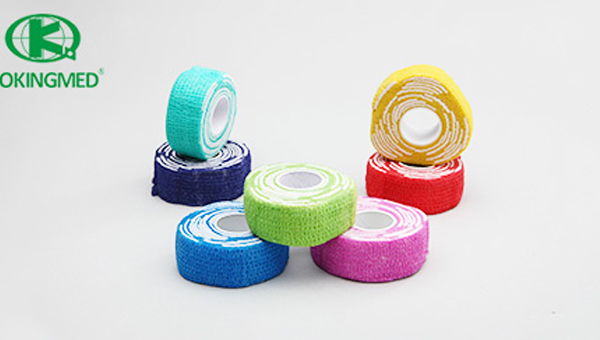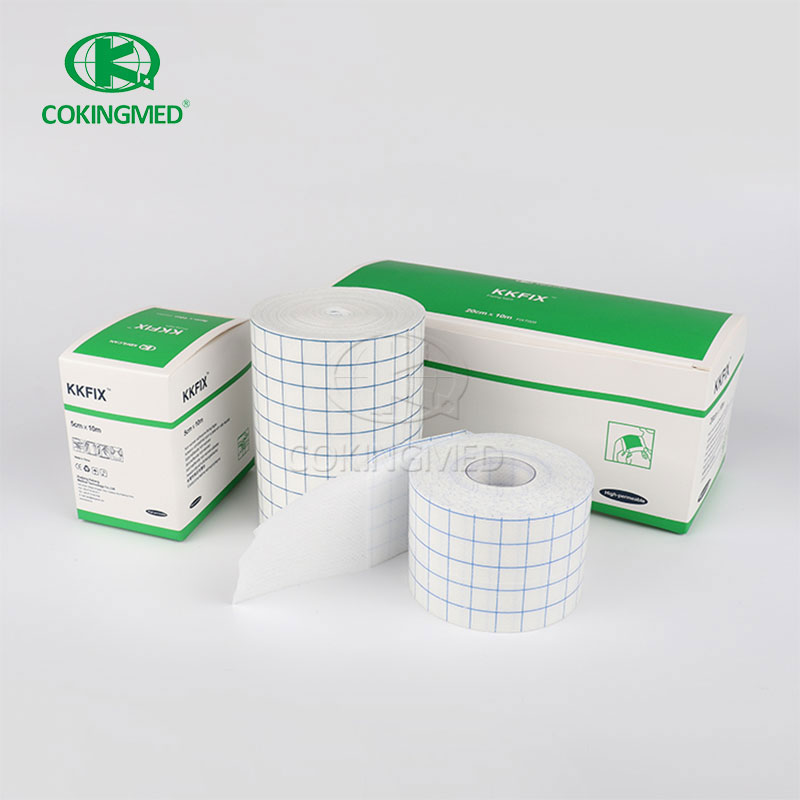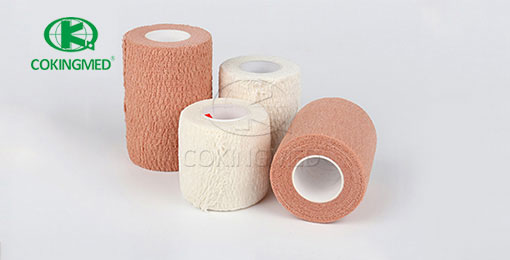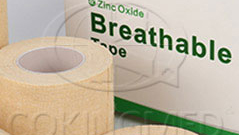Can Allergic People Use Self - adhesive Bandage?
Self - adhesive bandages are a common first - aid item, offering convenience and flexibility in wound care. However, for individuals with allergies, the question of whether they can safely use these bandages is a valid concern. The answer involves a careful consideration of the bandage's components, the nature of the allergy, and the steps one can take to minimize risks.

Components of Self - adhesive Bandages and Potential Allergens
Adhesive Materials:Most self - adhesive bandages use adhesives to stick to the skin. These adhesives can be made from various substances. Synthetic adhesives, such as acrylate - based adhesives, are popular due to their strong bonding properties. However, acrylate adhesives can be a common allergen. They may cause contact dermatitis, which is characterized by redness, itching, and a rash at the site of contact. Natural rubber latex is another adhesive material that was once widely used but has become less common due to its high potential for allergic reactions. Latex allergies can range from mild skin irritations to severe, life - threatening anaphylactic reactions.
Backing and Padding Materials:The backing of self - adhesive bandages is usually made of materials like plastic, fabric, or paper. Some individuals may be allergic to certain types of plastics, such as polyethylene or polypropylene. The padding inside the bandage, which is designed to protect the wound, can also be a source of allergens. For example, if the padding is made from cotton that has been treated with chemicals during processing, it may trigger an allergic response in sensitive individuals.
Assessing the Risk for Allergic Individuals
Knowing Your Allergies:The first step for an allergic person considering the use of a self - adhesive bandage is to be aware of their specific allergies. If you know that you are allergic to a particular adhesive or material, it's crucial to check the product label of the self - adhesive bandage. Many manufacturers now list the ingredients on the packaging, which can help you identify potential allergens. For instance, if you have a known acrylate allergy, you can avoid bandages that contain acrylate - based adhesives.
Patch Testing:Patch testing can be a useful method to determine whether a self - adhesive bandage will cause an allergic reaction. Before applying the bandage to a wound, a small piece of the bandage can be placed on a less sensitive area of the skin, such as the inner forearm. Leave it in place for 24 - 48 hours. If there is no sign of redness, itching, or other allergic symptoms during this period, it may be relatively safe to use the bandage on a wound. However, it's important to note that patch testing is not always 100% accurate, and an allergic reaction can still occur even if the patch test is negative.
Alternatives and Precautions
Hypoallergenic Bandages:For those with allergies, hypoallergenic self adhesive bandages are an option. These bandages are designed to be less likely to cause allergic reactions. They often use alternative, hypoallergenic adhesives and materials. For example, some hypoallergenic bandages use medical - grade silicone adhesives, which are generally well - tolerated by most people, including those with sensitive skin. The backing and padding materials in hypoallergenic bandages are also carefully selected to minimize the risk of allergies.
Wound Care Precautions:Even if using a hypoallergenic bandage, it's important to monitor the wound and the skin around it closely. If any signs of an allergic reaction, such as itching, redness, or swelling, appear, remove the bandage immediately. Clean the area gently with mild soap and water and consult a healthcare professional. In some cases, over - the - counter anti - itch creams or oral antihistamines may be recommended to relieve the symptoms of a mild allergic reaction.
In conclusion, while allergic individuals can use self - adhesive bandages, they need to take extra precautions. By being aware of the potential allergens in the bandages, conducting patch tests, and considering hypoallergenic alternatives, they can safely use self - adhesive bandages for wound care. However, it's always advisable to consult a doctor or a healthcare provider if there are any concerns about allergies and the use of self - adhesive bandages.







